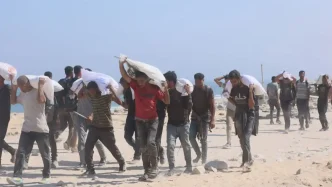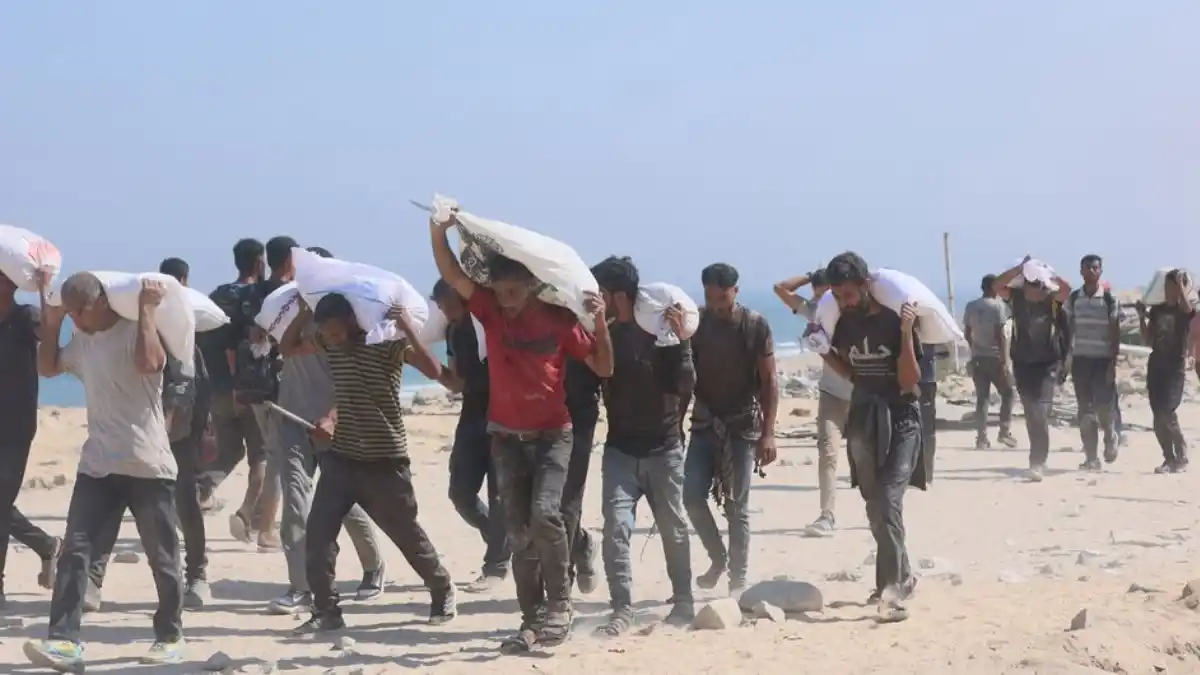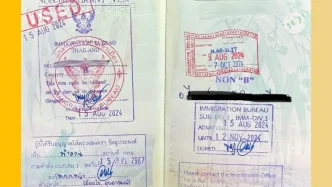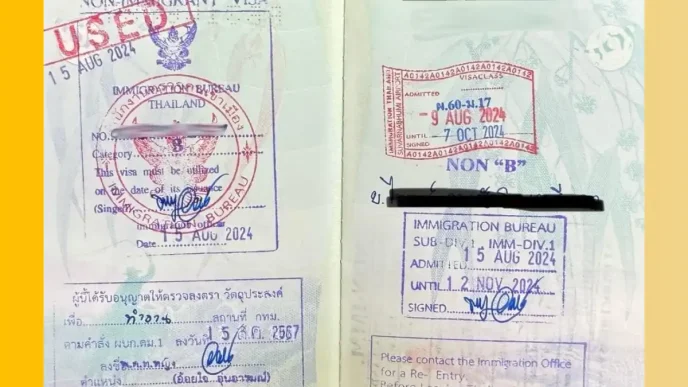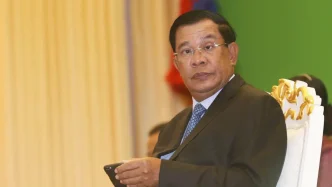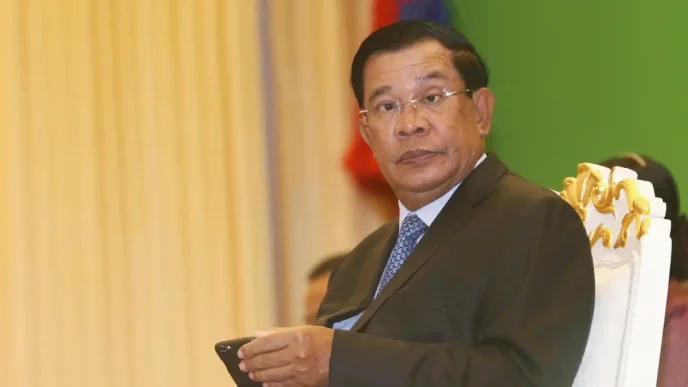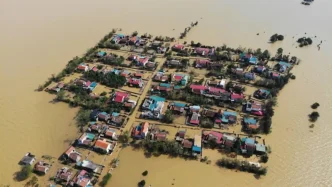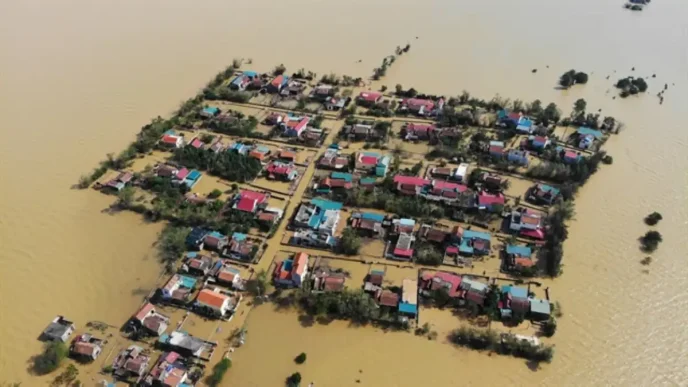Indonesia is intensifying efforts to deliver 10,000 tonnes of rice to Gaza, opting for land routes over high-risk airdrops as access to the besieged Palestinian territory remains severely restricted amid Israel’s ongoing military operations. The move, announced on August 4, 2025, reflects Jakarta’s growing concern over the humanitarian catastrophe unfolding in Gaza, where over 2.1 million Palestinians face relentless bombardments, displacement, and acute food shortages.
Foreign Minister Sugiono has publicly urged Israel to open unhindered humanitarian corridors into Gaza and condemned the use of starvation as a weapon in the conflict. Speaking on August 5, 2025, he highlighted the devastating impact of blocked aid routes, stating, “Blocked humanitarian corridors have taken the lives of children and infants. The images coming out of Gaza will surely unsettle anyone who still has a sense of humanity.”
A Preference for Land Delivery
Indonesia’s decision to prioritize land delivery stems from both practical and ethical considerations. Minister Sugiono emphasized that airdrop operations, while sometimes necessary, carry significant risks and technical challenges. “Airdrop operations are high-risk and come with numerous technical complications that we must be prepared to handle” he noted on August 5, 2025. Land routes, though fraught with logistical and political obstacles due to the blockade, are seen as a more humane and effective means of ensuring aid reaches those in need.
The aid package, which includes rice of the highest quality as assured by state-owned food corporation Perum Bulog, is part of a broader commitment by Indonesia to support the Palestinian cause. Rizky Puspitasari Umagaf, deputy head of Bulog Jakarta, underscored the symbolic weight of the gesture on August 5, 2025, saying, “This is not only about food, but also solidarity.”
However, the effectiveness of such aid remains uncertain given the dire conditions in Gaza. A United Nations report from June 2025 highlighted fuel scarcity as a critical issue, describing it as a matter of life or death for many residents. Without adequate fuel, water, or gas for cooking, raw food deliveries like rice risk being underutilized. Between April and June 2025, soup kitchens in Gaza reported an 80 percent drop in meals served, with some resorting to burning toxic waste as a desperate substitute for fuel.
Indonesia’s Stance and Global Context
Indonesia’s latest aid initiative was announced by Minister Sugiono during a pro-Palestine rally at the National Monument (Monas) in Central Jakarta on August 4, 2025. Describing the move as a reflection of the nation’s disturbed conscience, he decried what he termed genocide and the deliberate use of starvation tactics in Gaza. His impassioned speech also referenced past contributions, noting that Indonesia has already sent hundreds of billions of rupiah and millions of US dollars in aid, alongside 4,000 tonnes of logistical assistance, to Palestine.
The Indonesian government is now coordinating with multiple ministries and Palestinian counterparts to ensure the safe delivery of the rice shipment. Foreign Ministry spokesperson Hartyo Harkomoyo confirmed on August 5, 2025, that preparations are underway, though specific details about the route and timeline remain undisclosed due to the sensitive nature of the operation. Meanwhile, members of the House of Representatives Commission I, which oversees foreign affairs, have urged the government to collaborate with credible international bodies such as the UN Relief and Works Agency for Palestine Refugees (UNRWA) and the International Committee of the Red Cross (ICRC) to facilitate the process.
Indonesia’s push for land-based aid delivery comes against the backdrop of a worsening humanitarian crisis in Gaza. Israel’s military campaign, now entering its second year as of August 2025, shows no signs of abating. Over 2.1 million Palestinians are trapped in a cycle of displacement, with a collapsed healthcare system and extreme food insecurity exacerbating their plight. A July 2025 report by the Integrated Food Security Phase Classification (IPC) warned that nearly half of Gaza’s population is experiencing catastrophic hunger, the most severe level on its scale.
Challenges of Aid Delivery in a Blockaded Territory
The blockade of Gaza, enforced by Israeli authorities, continues to severely restrict the flow of essential goods, including food, fuel, and medical supplies. UN spokesperson Stéphane Dujarric stated in a recent briefing that Israeli restrictions on fuel deliveries into and throughout the Gaza Strip are “effectively choking off life-saving services for deprived and starving people.” This blockade complicates not only the delivery of aid but also its distribution and utilization within the territory.
Indonesia’s preference for land routes, while idealistic, faces significant hurdles. Humanitarian corridors into Gaza have been repeatedly disrupted by military operations and political tensions. Airdrops, as witnessed in Nuseirat in the central Gaza Strip on August 5, 2025, have been employed by other nations and organizations as a last resort, but they often result in aid being scattered or inaccessible to those most in need. Images of Palestinians rushing to retrieve parachuted pallets underscore both the desperation of the situation and the inefficacy of such methods in addressing systemic shortages.
Jakarta’s insistence on land delivery also reflects a broader frustration with the international community’s response to the crisis. Minister Sugiono’s call for unhindered access echoes similar appeals from global humanitarian organizations, yet actionable progress remains elusive. The Indonesian government’s collaboration with Palestinian authorities and potential partnerships with UNRWA and the ICRC may offer a pathway forward, but the political will of all parties involved—particularly Israel—remains a critical determinant of success.
Solidarity Amidst a Global Outcry
Indonesia’s aid initiative is not merely a logistical endeavor but a statement of solidarity with the Palestinian people. The country, home to the world’s largest Muslim population, has long positioned itself as a vocal advocate for Palestinian rights on the international stage. This latest commitment of 10,000 tonnes of rice builds on a history of support, including financial contributions and logistical assistance, as highlighted by Minister Sugiono during his address at Monas.
Public sentiment in Indonesia has also played a significant role in shaping the government’s response. Pro-Palestine rallies, such as the one held in Central Jakarta, draw thousands of participants and serve as a reminder of the deep emotional resonance the conflict holds for many Indonesians. The government’s actions, therefore, are as much a response to domestic expectations as they are a reflection of foreign policy priorities.
Yet, as the crisis in Gaza deepens, questions linger about the broader impact of such aid efforts. While 10,000 tonnes of rice represents a substantial contribution, it is a drop in the ocean compared to the scale of need. Nearly half of Gaza’s population faces catastrophic hunger, and the lack of basic infrastructure—fuel for cooking, clean water, and functioning healthcare facilities—means that food alone cannot address the multifaceted challenges confronting Palestinians.
Looking Ahead: A Test of Resolve
Indonesia’s determination to deliver aid via land routes to Gaza is a bold stance in the face of daunting obstacles. It signals not only a commitment to humanitarian principles but also a willingness to navigate the complex geopolitical landscape of the Israel-Palestine conflict. Whether Jakarta can secure the necessary cooperation to make this vision a reality remains to be seen, particularly given the entrenched restrictions imposed by the blockade.
As preparations for the rice shipment continue, the international community watches closely. Indonesia’s efforts may inspire other nations to prioritize sustainable aid delivery mechanisms over temporary fixes like airdrops. More critically, they underscore the urgent need for a resolution to the blockade and the broader conflict, without which humanitarian aid—however substantial—can only offer fleeting relief.
For now, Indonesia stands firm in its support for Gaza, embodying a blend of moral conviction and pragmatic action. As Minister Sugiono declared during his rally speech, the fight is far from over. The coming weeks will test whether this resolve translates into tangible outcomes for the millions of Palestinians enduring unimaginable hardship.

